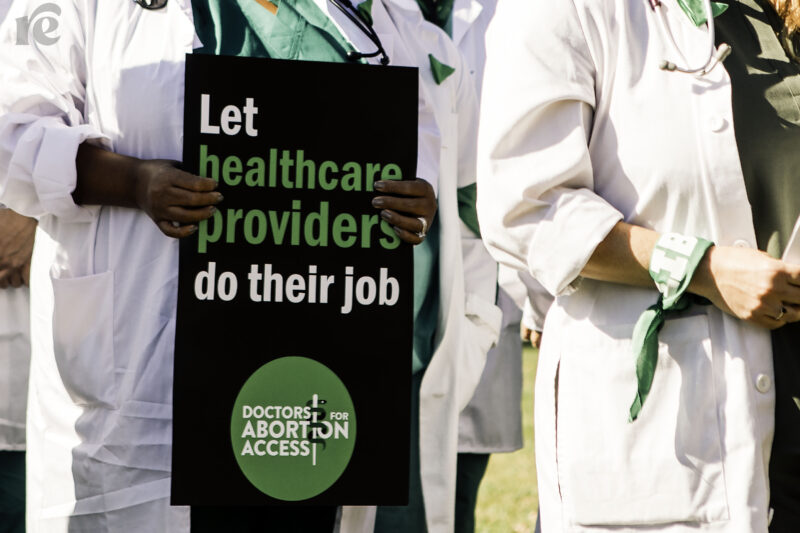Abortion Restrictions Threaten Independent Providers Like Me
Abortion bans disproportionately affected marginalized and underrepresented communities. As a Black woman providing care in Arizona, these are my patients.

When I decided to become an OB-GYN, I knew I would be an abortion provider, but I didn’t know that I would someday own an abortion clinic in a state where Republican legislators passed nearly 40 restrictions on abortion over the past decade and a half.
The first broad sweeping restrictions on abortion were signed into law in 2009, the year I arrived in Arizona. I have not known an Arizona without abortion restrictions. Currently, I provide abortion care up to 15 weeks of pregnancy because of a legal decision stating that I cannot be prosecuted for performing abortions in compliance with one of two conflicting laws in effect simultaneously in Arizona.
In 2013, I founded Desert Star Family Planning in Phoenix to combat the stigma that surrounds reproductive health care and bring services to ethnically diverse, medically underserved, and economically depressed communities in Arizona. Desert Star opened during a time when abortion access in the state was shrinking rapidly, as law after law restricting abortion was passed year after year. Despite these restrictions, we had Roe v. Wade as the legal floor in the country and it allowed Arizonans to have access to abortion. In fact, advocates were unsuccessful in challenging an 1864 law criminalizing abortion in 1972.
You already know and love someone who has had an abortion.
Under Roe, that 19th century abortion ban was deemed unenforceable, but never repealed. Now the floor has fallen out from beneath us after the Supreme Court decision in June overturned Roe. The decision, combined with the web of laws anti-abortion politicians passed—including the 1864 law that was still on the books—created chaos and confusion about whether abortion was legal in the state that changed on a daily basis.
These restrictions are not only medically unnecessary and harmful to abortion seekers, they also detrimentally impact the operations of independent clinics like mine. Year after year, these restrictions have chipped away at our capacity to provide care. My patients, many of whom see me as their doctor for additional care beyond abortion services—like gender affirming hormone therapy, well woman exams, and birth control—are at risk of losing access to the doctor they have come to know and trust as I struggle to keep my clinic open under extremely challenging conditions.
That is the goal of all of these restrictions and bans: to close clinics and to make abortion inaccessible.
Anti-abortion politicians have always taken advantage of the complicated feelings some people have about abortion and seized this moment after the fall of Roe to stoke an already complex and hostile legal environment for abortion in Arizona. Yet we cannot express enough who the people disproportionately impacted by abortion restrictions are: Black, Latinx, Asian American, Native Hawaiian, Pacific Islander, and Indigenous people; those working to make ends meet; the LGBTQ community; immigrants; young people; folks living in rural communities; people with disabilities, and other historically oppressed communities. These are my patients.
I agree with Gov. Katie Hobbs when she said in her State of the State address in January that “ensuring a strong, safe future for Arizona means defending the freedoms of all its residents.”
As a physician, patient advocate, and community member, I call on Arizonans to reject anti-abortion rhetoric, lean into empathy, and acknowledge our shared humanity. You already know and love someone who has had an abortion. In the United States, 1 in 4 people who can become pregnant will have an abortion by the age of 45. We need to fight for all of our freedoms so we can all thrive, not just survive. We want opportunity. We want to provide for the children we already have. Abortion is health care, and affordable, unrestricted access to abortion care is a positive social good.

